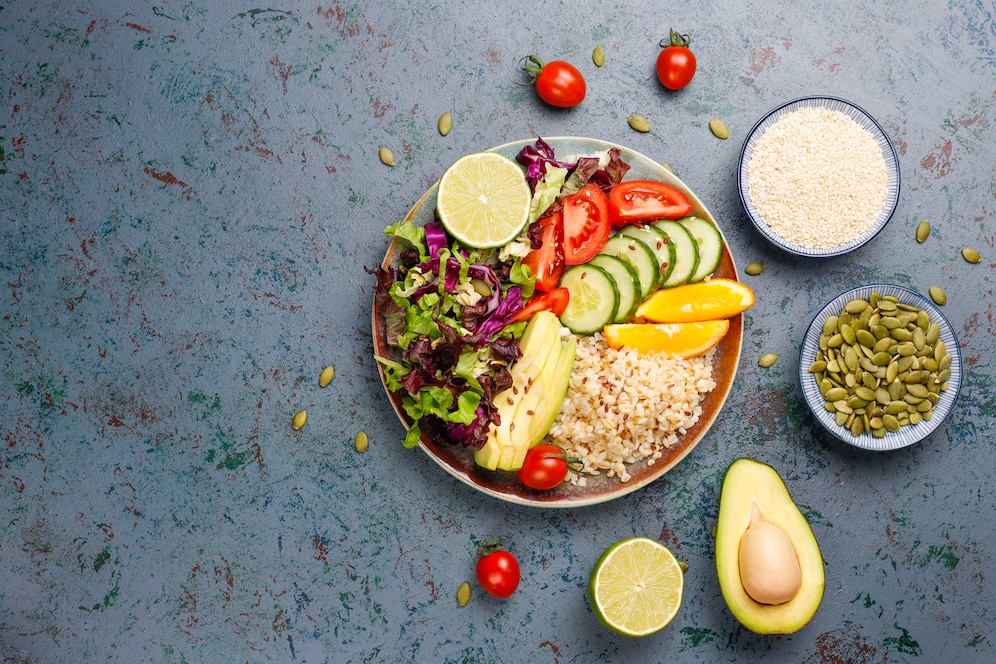
Do you want to try the ketogenic type of diet? Unfortunately, these beliefs may make the treatment more difficult, raise the chance of adverse side effects, and possibly put your health at risk.
The Keto diet is here to stay, especially when the New Year’s season resolution is well underway. After reading about its many benefits, if you’ve decided to follow the very-low-carb, high-fat diet, including improved memory, reduced brain fog, stabilized blood sugar, and rapid weight loss, a few things everyone should know first.
What Are These Keto Diet Myths?

Due to the level of popularity of Keto, there are several myths surrounding Keto. Getting familiar with the myths and realities of the Keto diet allows you to follow the right path when dealing with Keto. Let’s walk through these myths:
• If you eat too much fat, your body will go into ketosis – A myth
• The fat burn in Keto is caused by ketosis, not the other way around – Truth
When you follow a keto diet and follow the keto app effectively using this tool, your body enters ketosis, a condition in which it burns fat for energy (instead of glucose, its preferred source of energy). The body actively breaks fat down and directly converts it to ketone bodies. According to the Mayo Clinic, this is not the same as diabetic ketoacidosis, a potentially life-threatening complication of diabetes that occurs when your body doesn’t get sufficient ketone and insulin levels are high at the same time.
• One can decide to go off and on the keto diet, but you still lose weight – A myth.
• You’ll gain it all back if you try to lose weight while on Keto.
According to Fleck Audrey Fleck, RDN, a functional and integrative dietitian nutritionist also a diabetes educator in Pennsylvania, “keto has become such a trend that individuals don’t comprehend what they’re getting into and leap into the diet.” As a result, she claims, people frequently follow the keto diet one day and consume carbs the next. However, you won’t be able to gain the benefits of long-term ketosis this way.
• Everyone’s carb requirements are the same – A myth
• The number of carbohydrates you get to consume should be dependent on your health – Truth

You might not understand how low-carb a diet such as Keto’s is until you start eating it.
Followers typically take 25 to 50 grams (g) of carbs per day, with the lower range of that range being the most common starting point to assist the body in entering ketosis. You may, however, be capable of going higher depending on conditions (such as physical activity), according to Fleck.
She suggests collaborating with a professional dietitian who can calculate your dietary requirements. Furthermore, she claims that becoming Keto isn’t always essential. Some people are genetically predisposed to burning fat for sufficient energy, making the diet more complicated or unsuccessful.
• Keto Allows You to Consume as Much Butter and Bacon as You Desire – A myth.
• The truth is that Keto recommends favoring unsaturated fat in your diet – Truth.
Yes, the Keto diet is fat-based. But that doesn’t imply you should fry a pound of bacon first thing in the morning. “The ketogenic type of diet does not give you permission to eat fat,” says White Plains, New York-based nutritionist Jill Keene, RDN. Instead, limiting saturated fats, such as bacon and sausage, is the healthiest way to replace them with heart-healthy unsaturated fats, such as avocados, olive oil, flaxseed, and nuts, in moderation.
• You Can’t Eat Fruits and Veggies on Keto Because They’re Rich in Carbs – A myth.
• If you want to avoid stomach aches and constipation, which is a common keto side effect, you’ll need to consume more veggies – Truth.

Carbohydrates can be found in fruits and vegetables. (The only carb-free items will be oils, butter, and meat.)
Non-starchy vegetables such as zucchini, cucumbers, cauliflower, broccoli, and peppers and limited portions of lower-carb fruits such as berries (think strawberries, raspberries, and blues) are recommended by e. However, there are still some healthful foods that aren’t allowed on the keto diet, so check the popular keto diet food list first.
• Keto Diet represents Protein-rich Food Plan – A myth.
• It’s low-carb, but it’s nothing like the Atkins Diet – Truth.
Breakfast with smoked salmon and eggs and dinner with a large cut of steak may appear to be on track, but protein should be consumed in moderation. (This is also the difference between Keto and Atkins.) “Excess protein can easily be converted to glucose, raising your level of blood sugar and knocking you out of ketosis,” experts explained. “The breakdown of proteins into amino acids can also contribute to higher ketones,” she adds, “which can be an issue for a keto dieter who has high ketones level in their body.”
If you’re so sure of how much to eat, a licensed dietitian can help you figure out the correct macronutrient split.
• Keto Diet represents an Effective Weight Loss Method – A myth.
• There is no one-size-fits-all diet – Truth.

Just because your friend lost weight on Keto (or because everyone seems to be talking about it) doesn’t imply it’s the proper diet. “The biggest misconception I see in my practice is that [a keto diet] is the be-all and end-all of weight loss,” a nutritionist explained.
There are many fashionable diets out there, but she claims that the key to success is to pick an eating plan that you can stick to. (In fact, research published in the journal Cell in November 2015 revealed that different people have varying blood sugar responses to the same foods, implying that there is no one-size-fits-all diet). Assisting individuals discover a way to eat that they enjoy doesn’t make them feel guilty and gets them to their objectives.
We know we keep harping on talking to a trained dietitian about all of this, but you should do precisely that before going, Keto.
- The Keto diet can instantly normalize blood sugar levels in everyone
- While the Keto diet can help stabilize blood sugar levels, its effectiveness varies from person to person
A key benefit of the Keto diet is its ability to help with:
- The Keto diet can instantly normalize blood sugar levels in everyone
- While the Keto diet can help stabilize blood sugar levels, its effectiveness varies from person to person
A key benefit of the Keto diet is its ability to help with blood glucose control. This is especially helpful for people with type 2 diabetes or those at risk. By cutting down on carbs, the Keto diet keeps blood sugar levels more stable, avoiding the high spikes that come from eating lots of carbs.
Here’s how it works: Eating fewer carbs means the body makes less insulin, which is good for people who have insulin resistance, a common problem in type 2 diabetes. Also, by using fats for energy instead of carbs, the body doesn’t need to handle as much sugar.
. This is especially helpful for people with type 2 diabetes or those at risk. By cutting down on carbs, the Keto diet keeps blood sugar levels more stable, avoiding the high spikes that come from eating lots of carbs.
Here’s how it works: Eating fewer carbs means the body makes less insulin, which is good for people who have insulin resistance, a common problem in type 2 diabetes. Also, by using fats for energy instead of carbs, the body doesn’t need to handle as much sugar.
Conclusion
Intractable seizures and other deformities can be well treated with the Keto diet, which is both reasonable and effectively safe. Despite its long history, myths surrounding the diet remain unclear, including its best protocol, mechanisms of action, and the breadth of its usage.








